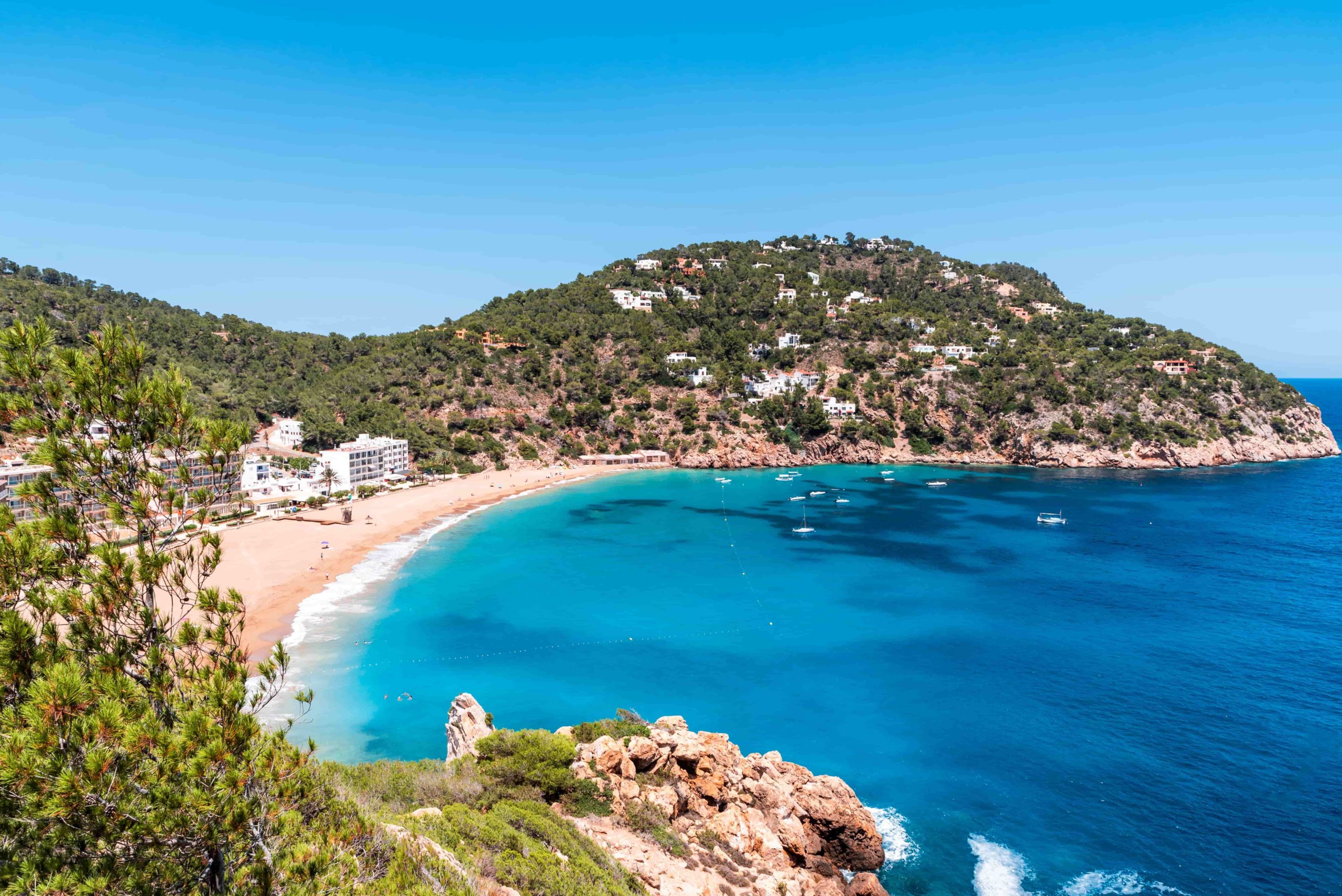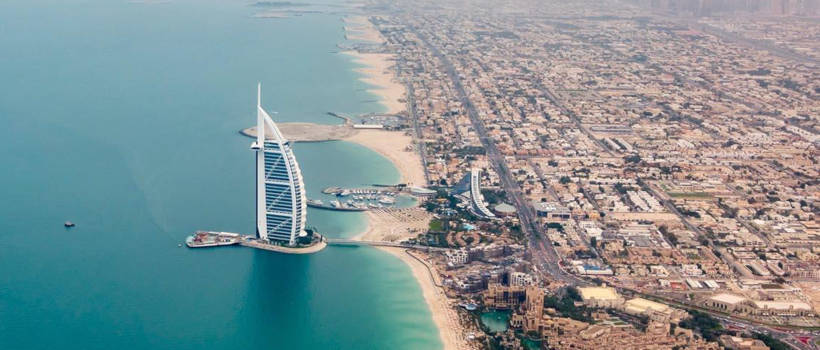Within the current hotel industry context, when managing our business, it is essential to take into account the changes experienced by the environment, external factors that are beyond our control, but whose impact is in our hands to manage.
The Expo 2020 will take place next year in Dubai, a highly anticipated event for which the capital of this Emirate with the same name has been preparing for quite some time. In order to understand how an event of such magnitude affects a destination, we must first understand what exactly the Expo consists of.
 Spain has already hosted this event on 3 occasions: Barcelona (1988, 1929) and Seville (1992), and is witness to the before and after that both cities have suffered as a result of the Expo. It is an international event, officially known as “International Registered Exhibitions” and approved by the BIE (Bureau International des Expositions), whose purpose is to find solutions to pressing challenges of today’s world. In this context, the Expo brings together an increasing number of nations that offer a dynamic exhibition through which to improve humankind’s knowledge while responding to social and human aspirations as well as technological, economic and social progress.
Spain has already hosted this event on 3 occasions: Barcelona (1988, 1929) and Seville (1992), and is witness to the before and after that both cities have suffered as a result of the Expo. It is an international event, officially known as “International Registered Exhibitions” and approved by the BIE (Bureau International des Expositions), whose purpose is to find solutions to pressing challenges of today’s world. In this context, the Expo brings together an increasing number of nations that offer a dynamic exhibition through which to improve humankind’s knowledge while responding to social and human aspirations as well as technological, economic and social progress.
Thanks to the Expo, the host destination undergoes a transformation, which is why Dubai has made a strong commitment to leave no one indifferent. The event will take place from October 20, 2020 to April 10, 2021, with the participation of more than 190 countries and, according to estimates, about 25 million visitors. Approximately 70% of these visitors are expected to come from outside the UAE, that is, 17.5 million international visitors.
The main subject is “Connecting minds, creating the future”, and the sub-themes “Opportunity, Mobility and Sustainability”. The aim is to lay the foundations to forge alliances and encourage cooperation, inspire future ideas and move to action through the support of solutions for social and sustainable causes.
The change initiative finds its starting point in Expo 2020 itself. Its sustainable pavilion has been accredited with the LEED Platinum Certificate (sustainable building certification system), and aims to achieve a zero net energy consumption. The objective has been set that 50% of the energy used during the Expo comes from renewable sources, generating half of it in the premises itself.
In this framework of technology, creativity, education and entertainment, Expo 2020 implies a long-term investment which generates employment both directly and indirectly, and which is expected to have a positive impact on the Dubai’s economy.

In the period between 2013 and 2031, Expo 2020 and its legacy are expected to contribute AED 122.6 billion of GVA (Gross Value Added, equivalent to about 30.3 billion euros). The GVA is a economic productivity metric that measures the total value created by a sector, country or region. That is, the value of the set of goods and services that are produced in a country over a period of time, discounting indirect taxes and intermediate consumption.
The Restaurants and Hotels sector is positioned in the top 3 of industries impacted by the Expo 2020. What is more, Restaurants and Hotels lead the ranking with the first position according to top sectors by total GVA, amounting to AED 8.9 billion.
The Expo 2020 impact can be broken down into three differentiated phases:
-
Pre-Expo (2013-2020). In this first phase, employment and projects in the construction sector are generated, implying a considerable investment in infrastructure. At this stage, the creation of around 37,500 jobs is expected.
-
Expo (2020-2021). During the event, jobs are generated in the operation of the Expo as well as in the hotel sector. During this period, the creation of 94,400 full-time jobs is estimated, 51,100 of which are in the hospitality sector. In addition, an expense from visitors (residents and tourists) in the aforementioned sectors is expected. During this peak period of activity, an impact equivalent to 1.5% of the annual GDP (Gross Domestic Product) of the United Arab Emirates is estimated.
-
Legacy (2021-2031). The expected investment in infrastructure and other assets amounts to a total of 40.1 billion AED. Most of this infrastructure is part of the legacy of the Expo. The 2020 District (where the Expo takes place) offers an intelligent and sustainable urban environment designed to foster creativity, cooperation and innovation.
 Within the hotel sector, in April 2019, Dubai boasted 111,000 rooms to sell every day, to which 30,000 are to be newly opened until the beginning of the Expo in October 2020. Demand, in turn, continues to grow year by year, 3.6% in 2018 and 6.4% in the first two months of 2019. Therefore, the key for hoteliers is to keep up with the pace at which the supply is growing in recent years.
Within the hotel sector, in April 2019, Dubai boasted 111,000 rooms to sell every day, to which 30,000 are to be newly opened until the beginning of the Expo in October 2020. Demand, in turn, continues to grow year by year, 3.6% in 2018 and 6.4% in the first two months of 2019. Therefore, the key for hoteliers is to keep up with the pace at which the supply is growing in recent years.
As hoteliers, it is essential to know how to manage an event of such magnitude so that it plays in our favor, since it is a double-edged sword. That is, there is no doubt that it entails an increase in demand, but it also implies an even greater increase in supply, as well as the entry of new competitors. It is in our hand to be able to position and differentiate ourselves so as not to lose market share while being able to optimize our rate level.
At this point, the hotel factory brings its experience and knowledge of the sector to help the hotelier to optimize revenue and position themselves optimally among the competitive set. What is more, we have extensive experience in consulting and training projects in Dubai, which allows us to know first hand the effects of events such as Expo 2020 on the destination. That is why we can verify that, in the current context, given the constant change suffered by the environment: consumer buying habits, gastronomic trends… it is crucial to have the tools and know-how to differentiate and provide added value to the customer, while optimizing profitability. For related enquiries or more information on the subject, do not hesitate to contact us.






 Spain has already hosted this event on 3 occasions: Barcelona (1988, 1929) and Seville (1992), and is witness to the before and after that both cities have suffered as a result of the Expo. It is an international event, officially known as “International Registered Exhibitions” and approved by the BIE (
Spain has already hosted this event on 3 occasions: Barcelona (1988, 1929) and Seville (1992), and is witness to the before and after that both cities have suffered as a result of the Expo. It is an international event, officially known as “International Registered Exhibitions” and approved by the BIE (
 Within the hotel sector, in April 2019, Dubai boasted 111,000 rooms to sell every day, to which 30,000 are to be
Within the hotel sector, in April 2019, Dubai boasted 111,000 rooms to sell every day, to which 30,000 are to be